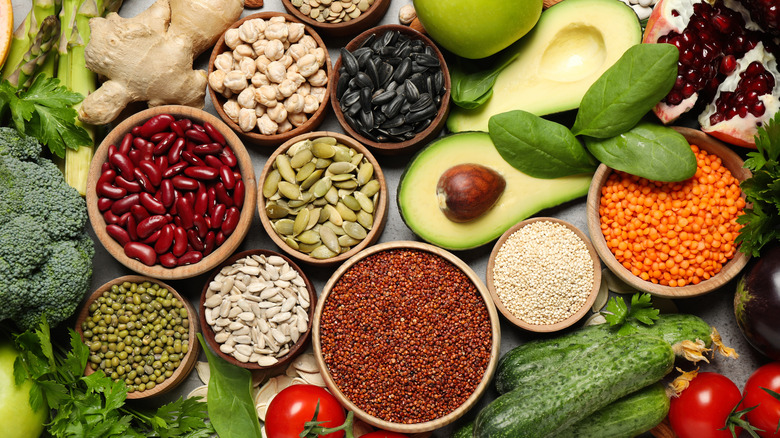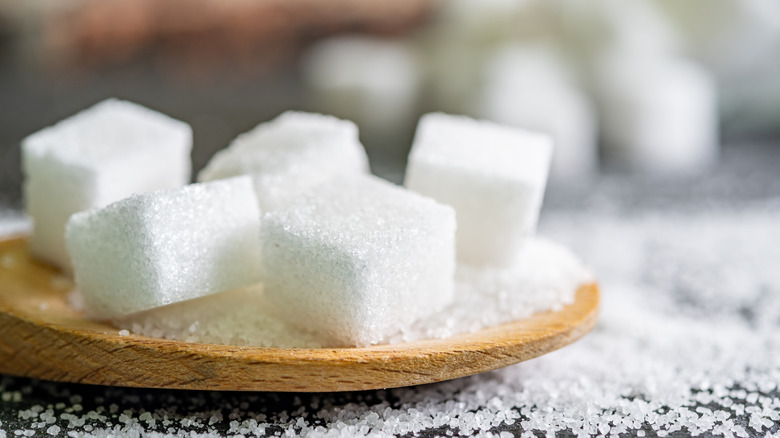The Ingredient In Your Food That Could Be Giving You Energy
Have you ever noticed that some foods keep you running on high energy for hours while others actually make you feel more tired almost as soon as you have eaten them? Well, you are not alone. We all have these reactions to foods, but being conscious of what is behind these different effects is the key to taking control of our lives and eating to feel energized and on top of the game instead of constantly trying to play a game of catch up.
According to Harvard Health Publishing, the key to eating to keep your energy levels up and sustained is in the glycemic level of the food. What's that, you may ask? Well, good question. According to the Cleveland Clinic, the glycemic index is a classification of the carbohydrates a food contains, as not all carbs are created equal. High glycemic index carbs, like fast food for example, rapidly elevate your blood sugar levels, while low glycemic level foods, such as dairy and fresh produce, have the opposite effect: they release sugar into the bloodstream slowly over a longer period of time as they digest (via Cleveland Clinic). This is what gives you lasting energy.
How do low glycemic foods boost energy?
The reason that low glycemic foods give you that sustained energy is that they do not overload your system with so much sugar that your body releases more insulin to metabolize it. The result when that happens is that your blood sugar levels may drop, causing you to quickly lose any of the energy you may have gained from the high glycemic food and start to feel tired and depleted pretty quickly (via Medical News Today).
Low glycemic foods do not cause this spike in insulin and so do not produce this reaction. Instead, they release their sugar and therefore their energy into the bloodstream in a slow steady stream. Low glycemic index foods not only keep you feeling energized (per INTEGRIS Health) but may also help ward off type 2 diabetes (via Cleveland Clinic). So eating the right foods on the glycemic index scale not only helps you to feel better on a daily basis, but can protect your overall health in the long run.
Foods to eat and avoid
High glycemic foods include processed foods that are made with added sugar or other forms of sweetener like high fructose corn syrup. This includes soft drinks and many snacks like chips and doughnuts. Baked goods and fast food items also make the list of foods to avoid for those that want to turn to a more low glycemic index diet (via Cleveland Clinic).
Low glycemic index foods include most dairy items, fresh fruits (whose sugar digestion is slowed down by the presence of fiber, per Medical News Today), nuts, beans, and vegetables, with the exception of potatoes, which are high glycemic index (via Cleveland Clinic). There go those French fries.
But don't fret about losing all your favorite snacks — some sweeteners do have lower glycemic index scores, like coconut sugar and honey for example. If you use whole grains, you don't have to cut baked goods out of your low glycemic index diet either.



